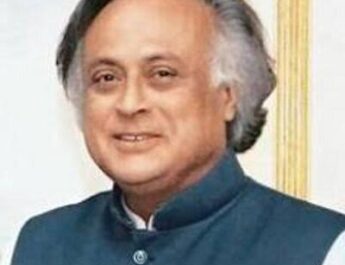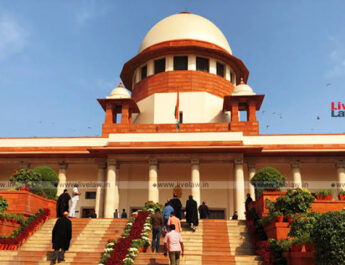NEW DELHI: Chief Justice of India N V Ramana retired on Friday, a day before his 65th birthday, with an apology for not tackling certain issues plaguing the system.
“I must admit that the issues of listing and posting matters are something I did not pay much attention to. I am sorry. We are busy with many things,” CJI Ramana said from his ceremonial bench. The outgoing top judge said the change was impossible because of the inherent resistance from the bar and without the cooperation of all stakeholders.
In his farewell speech, CJI Ramana said the only way of reforming this system is by deploying new technology and artificial intelligence to find lasting solutions.
He also confessed that he was able to conduct only “50 days of full hearing” in his almost 16-month long tenure.
224 APPOINTMENTS: At the farewell held on Thursday for him by the Delhi High Court Bar Association, CJI Ramana said: “I hope that I stood up to the expectation which you expected from me. I discharged my duties as Chief Justice in whatever possible way. I have taken up two issues, all of you know, the infrastructure and the appointment of judges. Thanks to the support given by my brother and sister judges in Supreme Court and Collegium, we successfully appointed almost 224 judges in high courts.”
On his last day in court, the Bar came out in full strength to bid goodbye to CJI Ramana. Senior advocate Kapil Sibal said CJI Ramana maintained the balance of the proverbial judicial ship in turbulent times, while senior advocate Dushyant Dave who broke down, said “You upheld the rights…you upheld the constitution…you maintained a system of checks and balances.” “You performed your duty with a spine, you have been a citizens judge,” Dave said.
“You performed your duty with a spine, you have been a citizens judge,” Dave said. “You called the government to answer. we will remember you for a very long time,” Sibal added.
“In the past year, the collegium led by CJI NV Ramana has relentlessly gone through the recommendations for appointment. This is the biggest contribution of the CJI looking at the number of judges appointed,” his successor CJI-designate Uday Umesh Lalit said.
JUDGMENTS: CJI Ramana has been part of 657 judgments of which he has authored 174. He has issued guidelines to fast-track all criminal trials against sitting and former legislators; adjudicated on issues pertaining to mental illness; struck down tribunal rules as envisaged in the amended Finance Act, 2017, and many more judgments of seminal importance. In July 2021, the Supreme Court expressed concern over the abuse of the sedition law and the lack of Executive accountability for the same. Authorities have enormous potential to misuse it, and this poses a threat to the functioning of democracy, Chief Justice of India NV Ramana had said months before putting the more than a century-old law in abeyance.
More recently, on August 23 in his judgment striking down the provisions of the Benami Transactions (Amendment) Act, the CJI Ramana-led bench expressed concerns about the Prevention of Money Laundering Act judgment which upheld the stringent powers accorded to the Enforcement Directorate (ED). Two days later, the CJI-led bench issued notice and said two aspects of the PMLA judgment needed a re-look: a) not providing the Enforcement Case Information Report (ECIR) under PMLA proceedings to the accused; b) reverse burden of proof on an accused to prove his innocence.
PROFILE: A first-generation lawyer, CJI Ramana hails from a village in Andhra Pradesh and rose through the ranks to reach the highest echelons of the judiciary. Starting out as an activist, CJI Ramana worked as a journalist for two years with a regional Telugu paper before he donned the lawyer’s robes in 1983. CJI Ramana was appointed as a high court judge in June 2000 and was elevated to the Supreme Court in February 2014. During his eight years in the Supreme Court, CJI Ramana sat on 657 Benches and authored 174 Judgments. According to SCC Observer, 39 per cent of CJI Ramana’s judgments were in criminal matters, while the rest were distributed among an array of issues including property matters (7 per cent) and those related to the Motor Vehicles Act, 1988 (7 per cent). Critics have pointed out that despite his exhortations outside court, CJI Ramana’s performance in court has been less than satisfactory.





